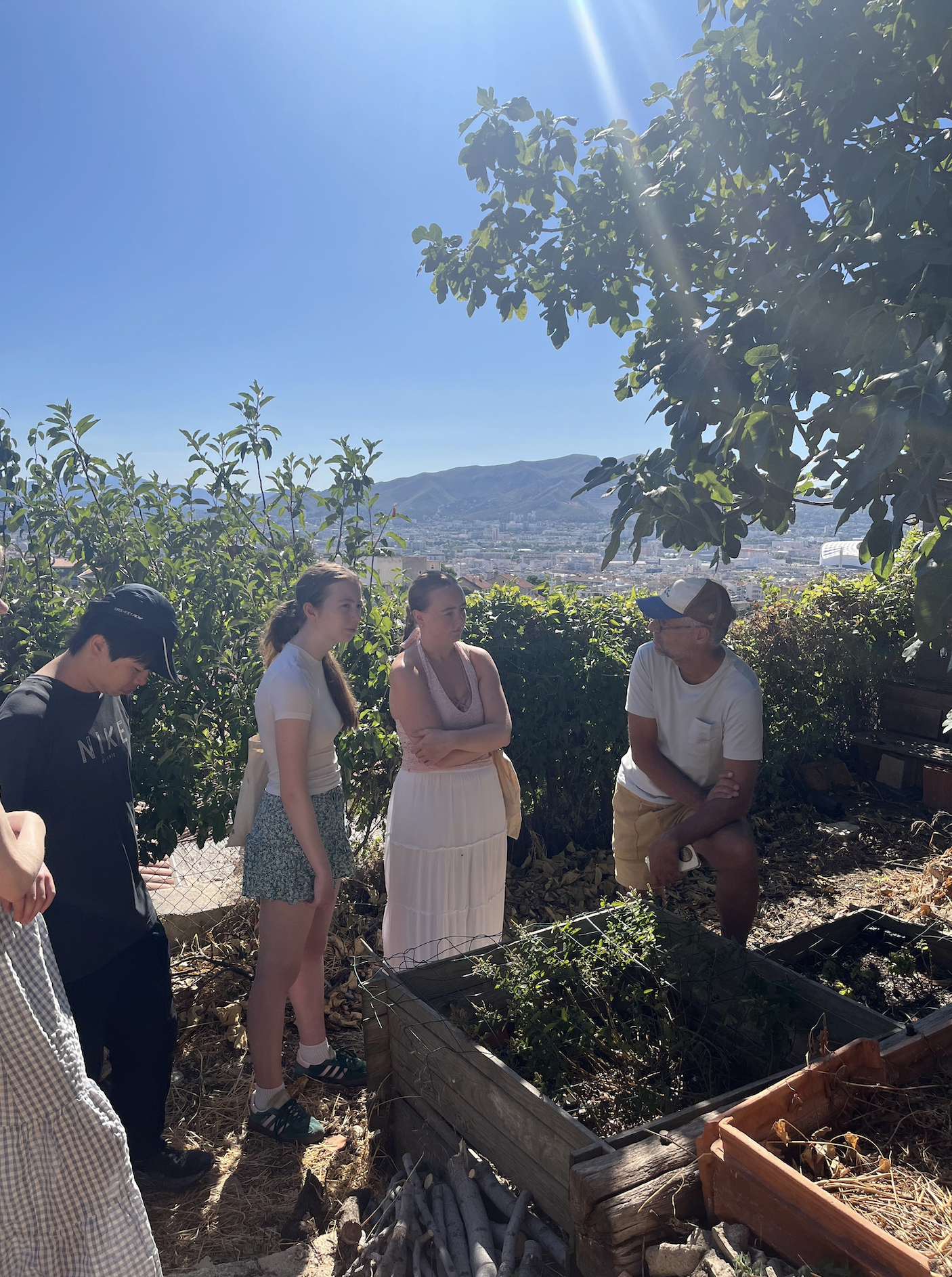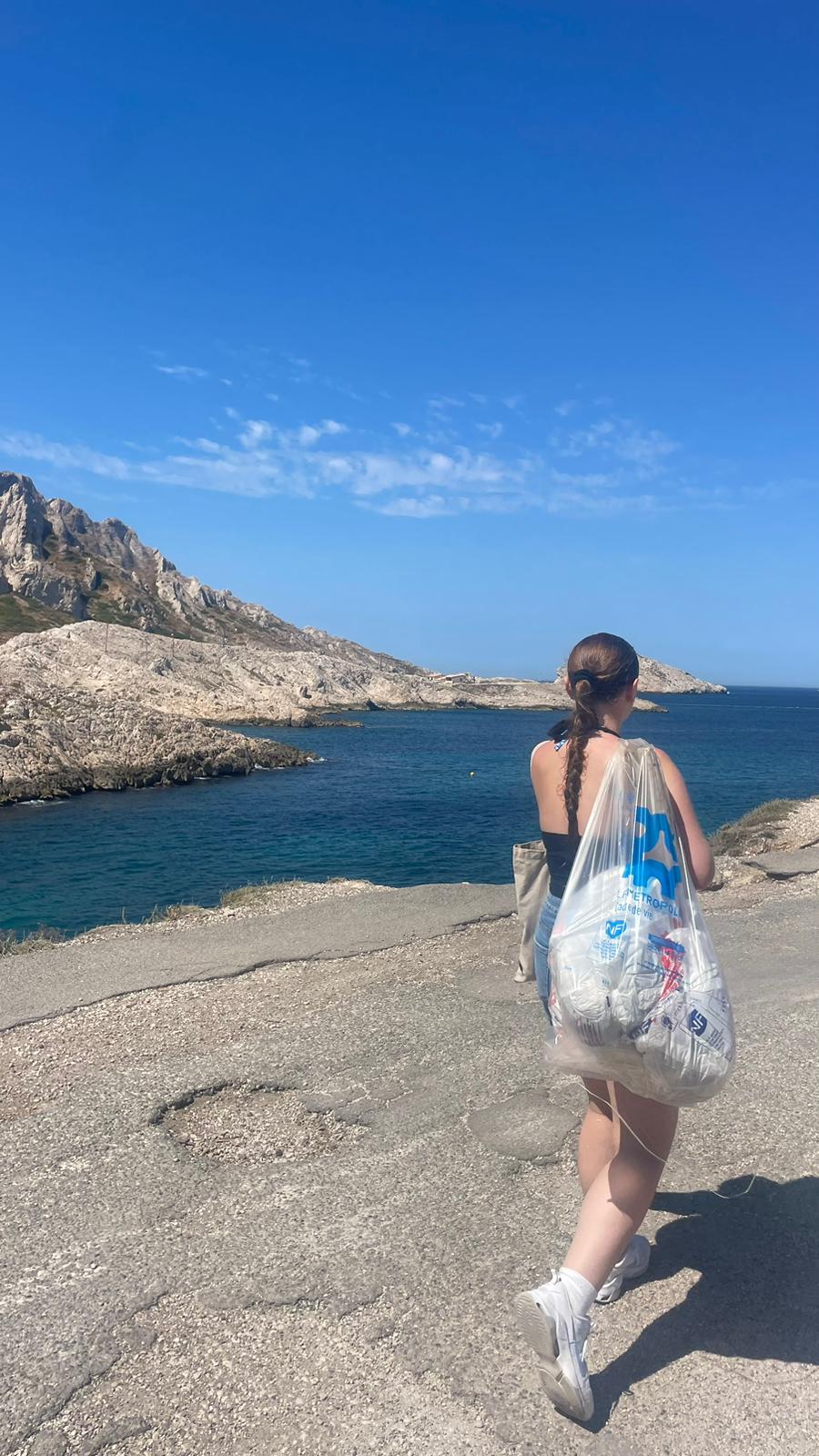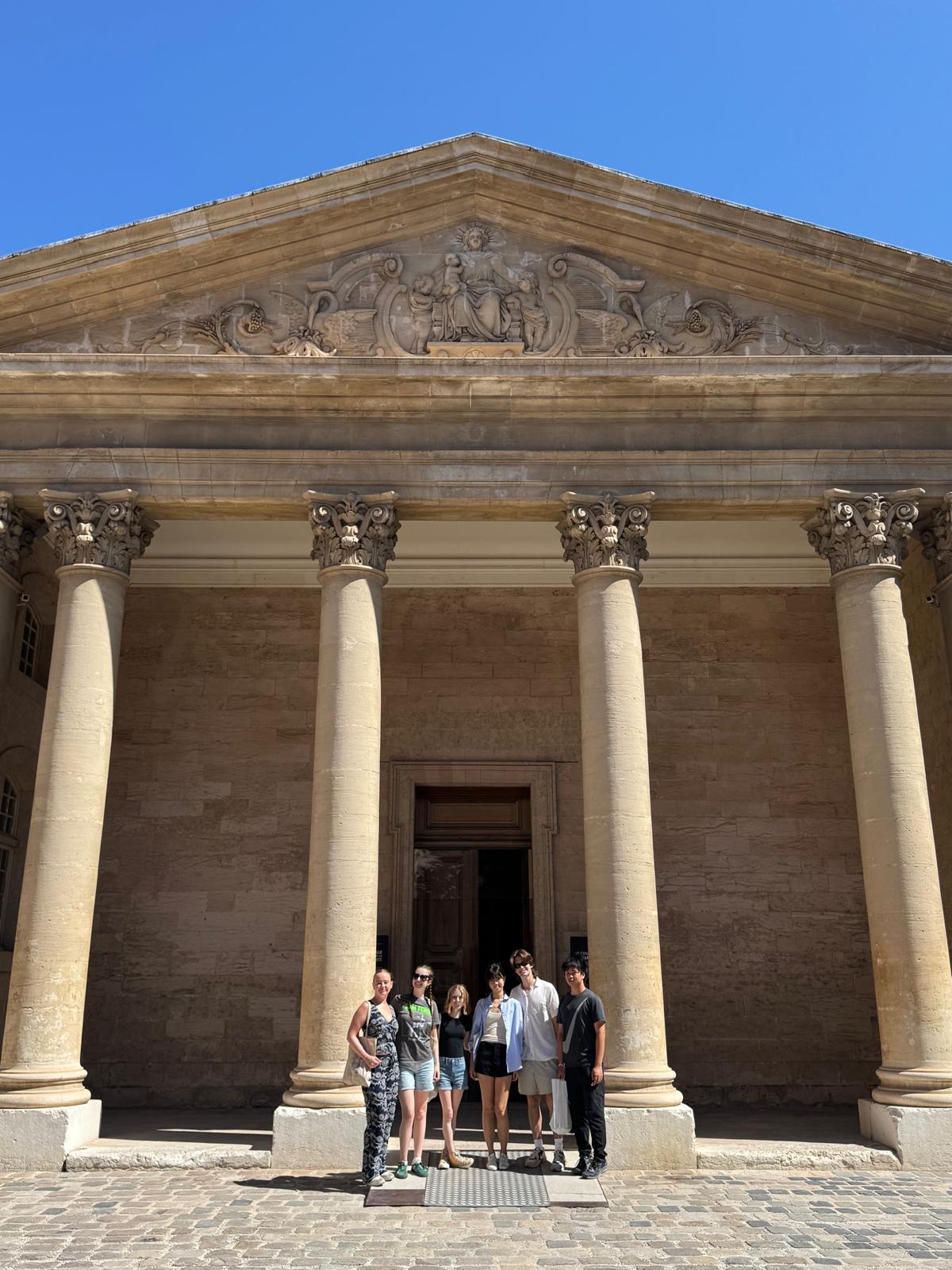Summer 2: LiA Reflection
Learning Leadership in Action with MerTerre
This summer, I spent six weeks in Marseille working with MerTerre, a French NGO dedicated to tackling abandoned waste in aquatic environments. Their work combines citizen science, policy advocacy, and awareness-raising to protect ecosystems and biodiversity.
As Laidlaw Scholars on the Make Sense x Laidlaw central programme, we were each assigned to one of two NGOs across the city. My group was assigned to MerTerre, where our mission had two parts: an international benchmark and a strategy for long-term engagement. Both were ambitious in scope and challenged me to test my leadership skills in real time.
The Mission
The first part of our assignment was to deliver a comprehensive international benchmark across three areas:
- Projects: analyse initiatives fighting against abandoned waste globally, identify what worked, and suggest improvements for MerTerre’s own platform, Zéro Déchet Sauvage.
- Scientific research: review the literature on plastic pollution and its impact on biodiversity and human health.
- Legislation: map national and international laws on abandoned waste and examine measures taken by public authorities.
We divided the work based on our strengths: I took the project's benchmark, Elise (a biologist from Hong Kong University) led the research review, and Ethan (studying computer science and visual art at Brown) tackled legislation. It was a natural fit and allowed us to get started quickly.
The second part of our mission was to design ideas for sustainable engagement and mobilisation. MerTerre wanted to build strategies that would encourage long-term participation in citizen science, beyond one-off cleanups. That could mean developing ambassador programmes, finding new financial models, or creating ongoing awareness campaigns to attract younger audiences.
Alongside this, we were expected to participate in MerTerre’s day-to-day work: weekly beach cleanups, sorting and characterising waste. In order to build field research techniques, Make Sense encouraged us to interview passers-by and brainstorm ways to increase the organisation’s visibility through communication campaigns.
It was clear from the outset that the challenge wasn’t just academic research. We needed to balance structured deliverables with flexibility, fieldwork, and the realities of working within an NGO’s culture and constraints.
Beyond our work with MerTerre, being part of the Make Sense programme gave me exposure to a wide range of tools, skills, and perspectives that stretched my leadership learning. We took part in workshops on design thinking, intercultural leadership, mental health, and community building, and were trained in practical methods such as how to conduct field surveys. Weekly coaching sessions with Emma and Jade provided space to reflect on challenges, test ideas, and apply frameworks to our projects, which was invaluable in helping me reframe obstacles as part of the learning process. We also visited other NGOs, like Jardins d’Haïti and Jardine Partagé, and met activists outside our projects, such as Anne-Christelle, an expert in textile ecological impact. These experiences broadened my understanding of how different grassroots organisations approach social and environmental issues in Marseille. These opportunities complemented my project work by embedding my learning in a supportive community of practice and equipping me with skills I’ll carry into future leadership roles.

Adapting to Shifting Priorities
One of the first lessons I learned was the importance of adaptive leadership. Our initial engagement plan included “visitor perception” field research — surveying Marseille residents and tourists about their attitudes towards waste. But in conversations with MerTerre, we discovered this wasn’t aligned with their priorities. The NGO was far more interested in building partnerships with large institutions than in gathering insights from individual volunteers.
This left us at a crossroads: do we stick to the original plan, or pivot?
After discussion with our advisors at Make Sense and our liaison at MerTerre, we chose to adapt. Instead of broad street interviews, we ran a smaller field survey with local young people, which revealed useful insights — especially about MerTerre’s limited presence on social media. We also interviewed a MerTerre staff member responsible for engagement, overcoming language barriers with the help of Google Translate and patient colleagues.
This experience reminded me that leadership isn’t about clinging to your first idea. It’s about being flexible enough to pivot when the context demands it — and still delivering something meaningful.
Problem-Solving and Teamwork
The visitor perception challenge was just one example of problem-solving in action. At times, it felt frustrating to have workplans shift or assumptions questioned. But through design thinking and adaptive leadership, we managed to stay open to change.
Our teamwork made this possible. From the beginning, the three of us aligned on our working styles. We were all highly organised “Type A” personalities: we liked having a shared calendar, clear deadlines, and structure. This alignment was a breath of fresh air after the sometimes-chaotic experience of university group projects.
That’s not to say it was all smooth sailing. There were disagreements along the way, but communication was open and respectful. I was proud to initiate early conversations about how we each preferred to work, which set a strong foundation. What struck me most was how equally invested we all were in the outcome. That shared commitment created trust and made it easier to tackle obstacles together.
Cultural Humility
Another valuable part of the programme was a workshop on intercultural leadership. We explored how culture shapes our perspectives — with visible elements, like language and dress, only scratching the surface of deeper values and beliefs. The training emphasised empathy, curiosity, and decentring your own assumptions in order to collaborate more effectively across differences.
For me, it was a chance to reflect on my own identity and privilege. Growing up in Northern Ireland, but also spending years in the Middle East and Asia, I’ve experienced cultural differences in varied ways. The workshop encouraged me to think more deeply about how those experiences shape how I interact in diverse teams, and how important humility is when approaching global leadership.
Ethical Leadership
One of the biggest internal challenges I faced was imposter syndrome. Sitting across from experienced NGO leaders, I often felt: who am I to be giving advice to them?
It helped to talk this through with my fellow Scholars. We all felt it at some point — the sense that we were too inexperienced to add real value. But over time, I came to see that our role wasn’t to arrive with all the answers. It was to ask thoughtful questions, bring fresh ideas, and show genuine curiosity.
One moment stands out. In a meeting with Pascal, who runs a community garden in Marseille, he reassured us that questioning and ideating are always welcome. For him, collaboration is strengthened when new people show interest and bring different perspectives.
This helped me understand ethical leadership more clearly. It’s not about having authority. It’s about knowing when to listen, when to speak, and how to reflect. Intentions matter — but so does the humility to recognise your limits.

Lessons Learned
Looking back, the experience was about far more than benchmarking projects or picking up litter. It was about testing my leadership in a real, intercultural, purpose-driven context.
I learned that:
- Adaptive leadership means embracing ambiguity and pivoting when priorities shift.
- Collaborative leadership thrives when you recognise others’ strengths and build shared structures.
- Cultural humility requires empathy, curiosity, and openness to difference.
- Ethical leadership is about balancing confidence with humility and creating space for reflection.
These lessons will stay with me. In my future career, I want to keep cultivating empathy across cultural boundaries, creating reflective spaces to guard against ethical blind spots, and practising adaptive problem-solving rather than rigid planning. Most of all, I’ve learned that effective leadership is as much about who you are — self-aware, humble, open to learning — as about what you do.


Please sign in
If you are a registered user on Laidlaw Scholars Network, please sign in